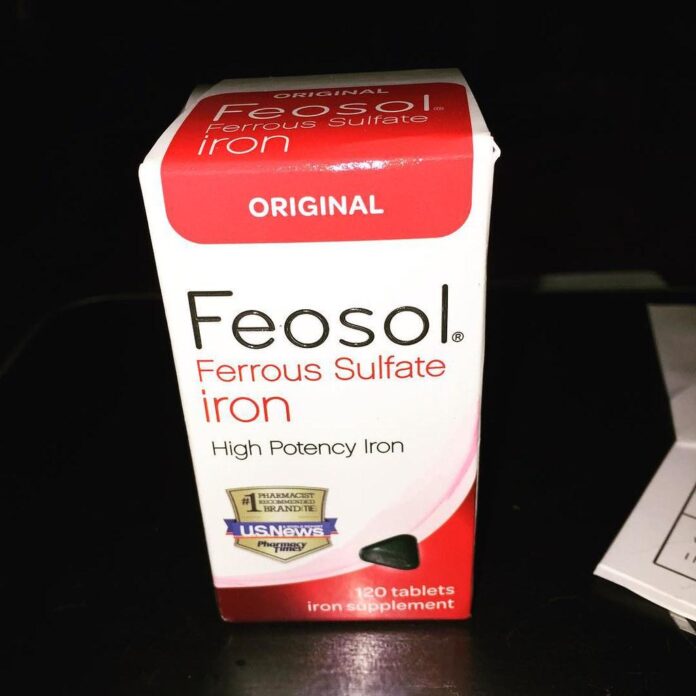
The Importance of Iron Supplementation for Anemia Treatment
Anemia is a condition that occurs when the body does not have enough red blood cells or hemoglobin to carry oxygen to the body’s tissues. It can cause symptoms such as fatigue, weakness, and shortness of breath. One of the most common causes of anemia is iron deficiency, which can be treated through iron supplementation. In this article, we’ll explore the importance of iron supplementation for anemia treatment and how it can help improve the quality of life for those suffering from this condition.
Iron is an essential mineral that is vital for many bodily functions, including the production of red blood cells. When the body does not have enough iron, it cannot produce enough hemoglobin, which leads to anemia. Iron supplementation is necessary to replenish the body’s iron stores and restore the production of red blood cells. This treatment can help alleviate the symptoms of anemia and improve overall health and well-being.
There are various forms of iron supplements available, including ferrous sulfate, ferrous gluconate, and ferric citrate. These supplements are effective in increasing iron levels in the body and can be taken orally in the form of tablets or liquid. It’s important to follow the recommended dosage and consult with a healthcare professional before starting iron supplementation to ensure safety and effectiveness.
Iron supplementation is particularly crucial for individuals who have heavy menstrual periods, are pregnant, or are breastfeeding, as they are at a higher risk of developing iron deficiency anemia. Additionally, people with certain medical conditions such as gastrointestinal bleeding, chronic kidney disease, or inflammatory bowel disease may also require iron supplementation to address their anemia.
In addition to treating anemia, iron supplementation can also help prevent iron deficiency in individuals who are at risk. This includes infants and young children, women of childbearing age, and individuals who follow vegetarian or vegan diets, as these groups are more prone to developing iron deficiency. By maintaining adequate iron levels through supplementation, these individuals can minimize their risk of developing anemia and its associated symptoms.
When considering iron supplementation for anemia treatment, it’s important to understand the potential side effects and interactions with other medications. Common side effects of iron supplementation include constipation, nausea, and stomach discomfort. It’s also essential to be aware of potential interactions with other medications, such as antacids, proton pump inhibitors, and some antibiotics, as they may reduce the absorption of iron and affect its effectiveness.
Furthermore, it’s essential to monitor iron levels regularly when undergoing iron supplementation to ensure that the treatment is providing the necessary benefits. This can be done through blood tests that measure hemoglobin and ferritin levels, which indicate the body’s iron stores. By monitoring these levels, healthcare professionals can adjust the dosage of iron supplementation as needed to maintain optimal iron status.
In addition to iron supplementation, it’s vital to address the underlying causes of anemia to effectively manage the condition. This may include identifying and treating any gastrointestinal bleeding, resolving nutritional deficiencies, or managing chronic medical conditions that contribute to anemia. By addressing these factors in conjunction with iron supplementation, individuals can achieve better outcomes and improve their overall health.
For individuals who have difficulty tolerating oral iron supplementation or have more severe cases of anemia, intravenous (IV) iron therapy may be recommended. This treatment involves the administration of iron directly into the bloodstream and is often used when oral iron supplementation is ineffective or not well-tolerated. IV iron therapy can provide a faster and more significant increase in iron levels, making it a valuable option for individuals with severe anemia.
In conclusion, iron supplementation is an essential component of anemia treatment and plays a crucial role in replenishing the body’s iron stores and restoring the production of red blood cells. By addressing iron deficiency through supplementation, individuals can alleviate the symptoms of anemia, improve their energy levels, and enhance their overall quality of life. It’s important to consult with a healthcare professional to determine the appropriate iron supplementation regimen and ensure that it is safe and effective for each individual’s unique needs. With the right treatment approach, individuals can effectively manage anemia and achieve better health and well-being.

















